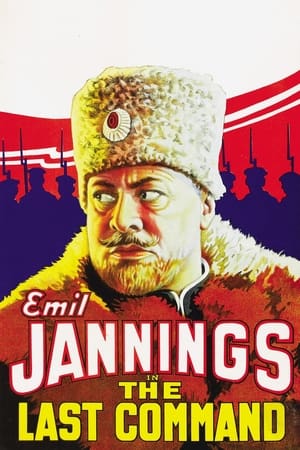
The Last Command
Emil Jannings is masterful in this depiction of an elderly gentleman selected by an Hollywood director (William Powell) to play the part of a Russian general in a film. When he arrives on set, his colleagues tease him about a medal he is wearing. He proceeds to tell them it was given to him by Czar Nicholas II himself, and after a bit of playful derision, they return the medal and the "General" finds himself looking into the mirror of his make-up box whence he drifts into a retrospective of his true self - the commanding General Grand Duke Sergius Alexander, cousin to the Czar and the man in charge of Imperial Russian forces in 1917. His portrayal of this proud, effective man who displays some sense of pragmatism about their military situation, coupled with a sense of gentleness to Evelyn Brent (who is actually the Bolshevik spy sent to eliminate him "Natalie") is nuanced and engaging. As the revolution turns the tables on this once powerful man, we see his character exposed to hardship and degradation before his new love manages to help him escape the clutches of the murderous mob. When we return to the present day, this old, fading, patriot sees his candle burn brightly just one last time... Though it may have some basis in truth - it was frequently safer for European generals who lost battles to flee rather than face the consequences at home - it is a fictional story and I think that allows Josef von Sternberg much more licence to create and develop the characters. Jannings is super, but to a lesser extent, so is Brent as the dedicated revolutionary who falls in love with the old Duke, and sees in him a different sort of love for his country, one she finds endearing and honourable. The photography works well in illustrating the revolutionary scenes amidst the poverty and cold and sparing use of inter-titles gives us plenty to keep this strong, impassioned narrative moving along perfectly. Great watch.
